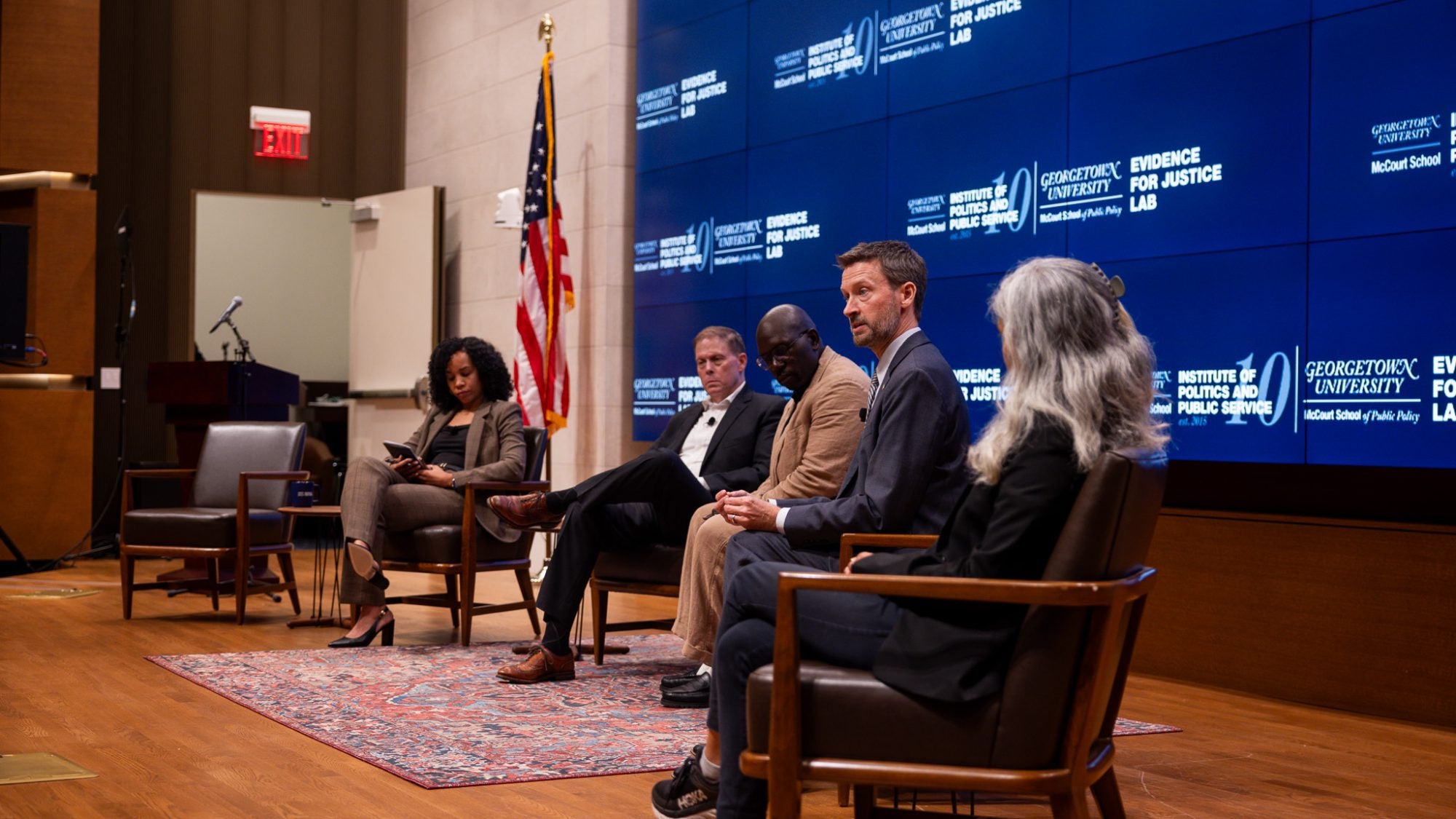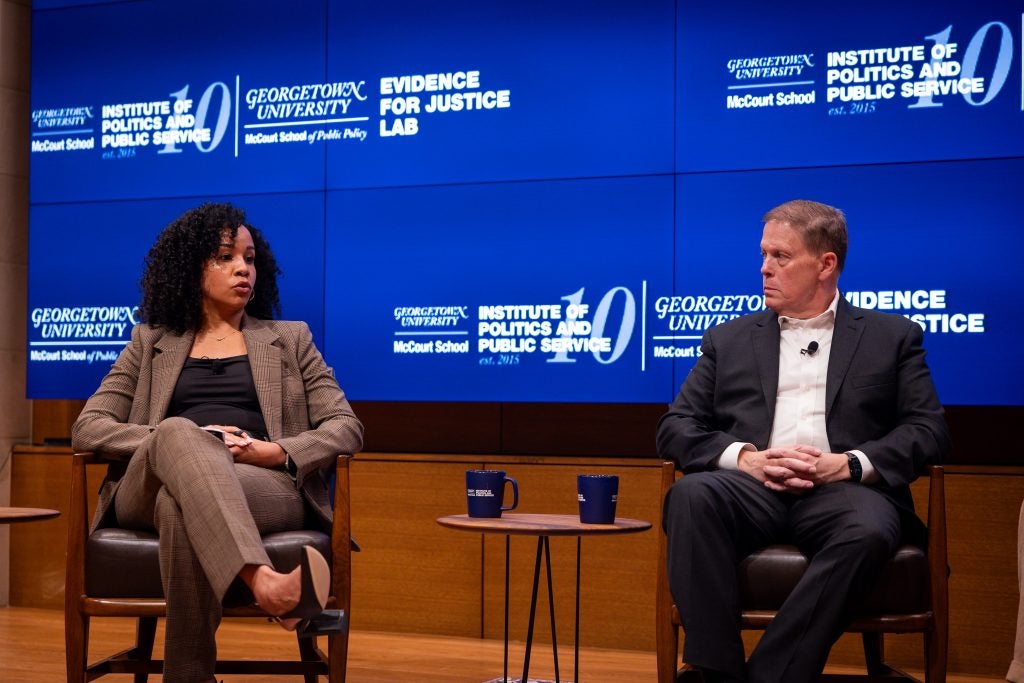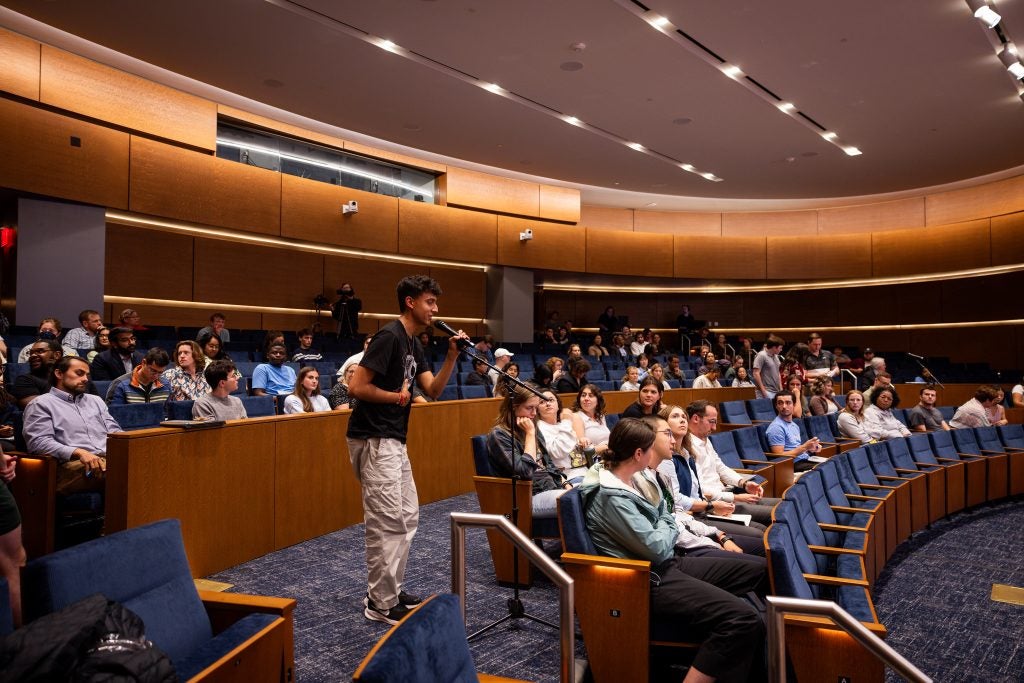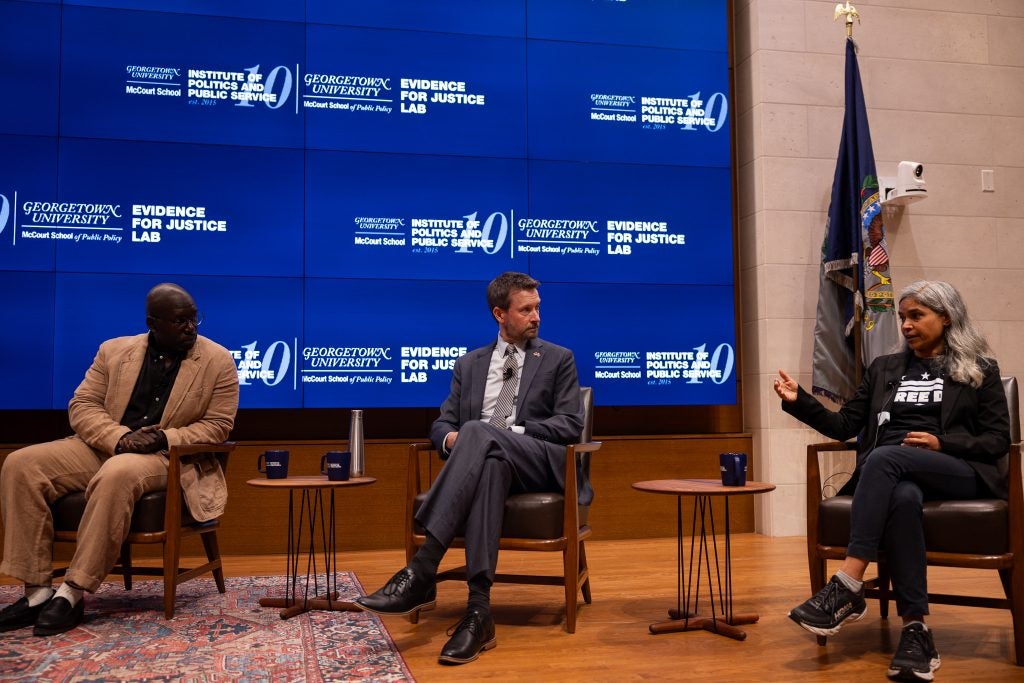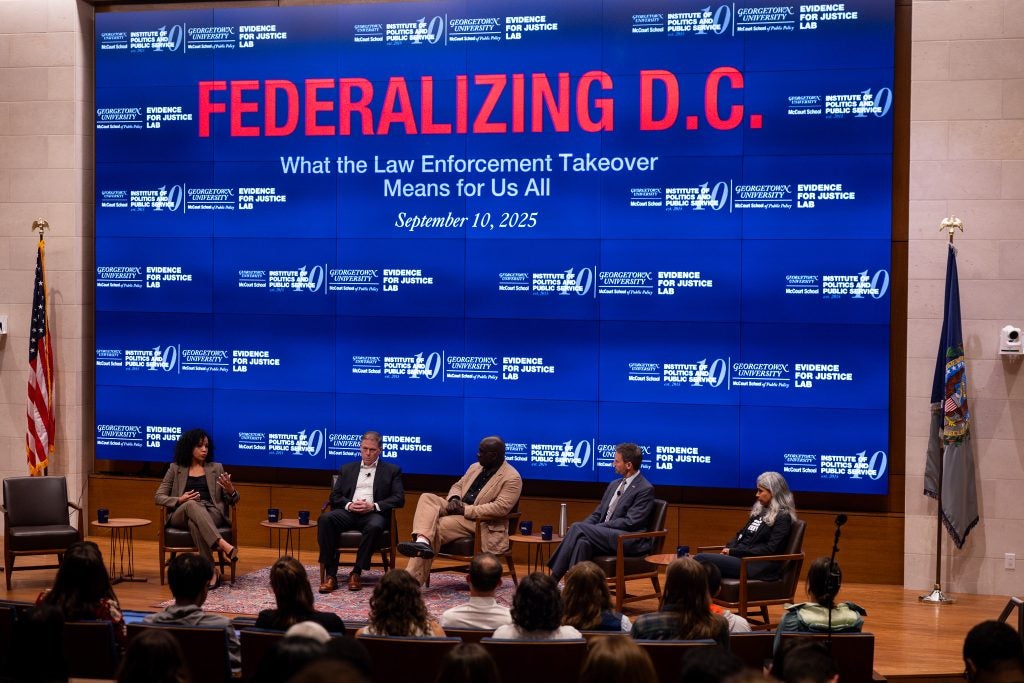On September 10, Georgetown University’s Institute of Politics and Public Service and the McCourt School of Public Policy’s Evidence for Justice Lab, hosted a panel to discuss the Trump Administration’s federalization of D.C law enforcement. Moderated by Dr. Andrea M. Headley, Faculty Director of the Evidence for Justice Lab, this panel featured D.C. Ward 6 Councilmember Charles Allen, New York Times Opinion Columnist and Fall 2025 GU Politics Fellow Jamelle Bouie, Free D.C. Executive Director Keya Chatterjee, and former U.S. Capitol Police Chief Steven Sund.
On August 11, 2025, President Donald Trump declared an emergency that necessitated federal law enforcement in the Capitol. This included an increased presence of law enforcement officers from agencies including the FBI, Immigration and Customs Enforcement, the DEA, and the National Guard, among others. The increased presence came despite the objection of D.C. officials. The Trump Administration has also threatened expanding this strategy to other major cities, notably Chicago and Baltimore.
While all panelists acknowledged that public safety is a legitimate concern, they disagreed sharply over the motives behind the federal intervention — and whether it has been effective. Former Police Chief Sund defended the move, asserting that, “it’s worked, it’s driven down crime,” and has aided local law enforcement.
Most panelists, however, questioned the administration’s intentions. Bouie argued the strategy “creates the image and pageantry of authoritarianism,” while Councilmember Allen contended that “the only reason this is happening in D.C. is because they can,” not because of actual crime levels.
Panelists discussed the federal presence’s impact on community trust and civil liberties. Chatterjee expressed alarm over the tactics used, saying, “they are kidnapping our neighbors and trying to tell us it’s good for us” — a comment that drew loud applause from the audience.
The final portion of the discussion centered on whether the federal presence was supported by D.C. residents. Sund emphasized that most encounters with law enforcement have been peaceful, telling attendees, “we become cops to help people.” Other panelists pushed back, arguing that local resistance is growing. “The people of D.C. will not take it,” Chatterjee declared.
As the evening concluded with student questions, Bouie left the audience with a reflection: “What is democratically legitimate?”
This article was written by GU Politics Student Advisory Board Graduate Co-Chair Emma Mester (MPP’26).
Watch the full recording below.
